TRAUMATIC DENTAL EMERGENCIES
Trauma to the teeth can have significant consequences. With immediate treatment, careful monitoring, and follow-up, many of these complications can be avoided.
If your child experienced a dental emergency, give us a call immediately 385-210-0000.
If your child experiences injury to their tooth/teeth after hours, you can call 385-210-0000 and press 1 to be connected directly with Dr. Bart and Dr. Matt. We will triage the urgency over the phone and if necessary will attend your child in-office any hour of the day or night.
We are ALWAYS here to assist when your child’s dental health is at risk. Some injuries are urgent and should be treated immediately. Others are not urgent but should be evaluated within a couple days of the injury. When in doubt call our office. It’s better to be cautious.
Below are some common dental injuries categorized by Urgent & Non-urgent with recommendations.
URGENT: INTERVENTION NEEDED IMMEDIATELY
Avulsed Tooth (Knocked-Out Tooth)
A knocked-out tooth is one of very few TRUE dental emergencies. The longer the tooth is out of the mouth the more likely it is that the vital cells of the ligament will die.
- Determine if the tooth is a baby tooth or a permanent tooth. (We don’t reimplant baby teeth.)
- Only hold the tooth by the white part. Avoid touching the root.
- If dirty, rinse for 10 seconds under tap water.
- Replant the tooth (stabilize the tooth by biting gently on a cloth) OR place the tooth in a glass of milk.
- Call our office IMMEDIATELY–385-210-0000
The quicker this protocol is followed the better chance that the tooth can be retained throughout life.
Lateral Luxations (Tooth Displaced from it’s usual position)
When dental trauma occurs it’s not uncommon for teeth to become displaced either forward, towards the lips, backward, towards the palate/tongue, or extruded out of the socket. This displacement can become permanent if the tooth is not re-positioned in a timely manner. This is of particular concern if the tooth displacement results in the inability to function (i.e. The child can no longer chew because the displaced tooth inhibits full closure)
- The parent or child can attempt to reposition the tooth on their own and then hold the tooth in place by gently biting on a cloth or CALL IMMEDIATELY to have Dr. Bart or Dr. Matt reposition the tooth.
- If the family performed the repositioning it’s important to call immediately for an evaluation to determine the best course of action moving forward.
- Displaced teeth often require a splint to stabilize the tooth during healing.
NON-URGENT: CAN BE SEEN NEXT DAY
Chipped or Fractured Tooth
If your child has chipped or fractured their tooth, have him or her rinse the mouth with warm water, then use a cold compress to reduce swelling of the soft tissues. Most tooth fractures are NOT URGENT and can easily be treated the next day. The only tooth fracture emergencies include fractures that involve the nerve. Upon inspection if you see bleeding from the tooth, not the gums, the nerve has been involved and you should CALL US IMMEDIATELY.
Bitten Lip or Tongue
If your child has bitten a lip or tongue severely enough to cause bleeding, clean the bite gently with water and use a cold compress (a cold, wet towel or washcloth pressed firmly against the area) to reduce or avoid swelling. Give us a call to help determine how serious the bite is.
Object Caught In Teeth
If your child has something caught between his or her teeth, use dental floss to remove it gently. Never use a metal, plastic, or sharp tool to remove a stuck object. If you are unable to remove the item with dental floss, give us a call.
Loose Tooth
If your child has a very loose tooth, it should be removed to avoid being swallowed or inhaled. A loose baby tooth is NOT an emergency though children will sometimes make it seem urgent. If the child is unable to remove the tooth on their own and you wish to have Dr. Bart or Dr. Matt assist, encourage your child to eat a soft diet and call to schedule an appointment.
Broken Jaw
If you know or suspect your child has sustained a broken jaw, use a cold compress to reduce swelling. Call our emergency number and/or head to the hospital immediately. In many cases a broken jaw is the result of a blow to the head. Severe blows to the head can be dangerous and even life-threatening.
Avoiding Injury
You can help your child avoid dental emergencies. Child-proof your house to avoid falls. Always use car seats for young children and require seatbelts for older children. Insist that your child use appropriate helmets for bike riding, skateboarding, etc.
If your child plays contact sports, have him or her wear a mouthguard. Ask us about creating a custom-fitted mouthguard for your child. MOST DENTAL TRAUMAS OCCUR FROM SPORTS RELATED INJURIES OR TRAMPOLINE ACCIDENTS. By using a mouthguard for sports and limiting the number of children on a trampoline at any given time dental trauma risk will be low.
ACUTE DENTAL PAIN
URGENT: INTERVENTION NEEDED IMMEDIATELY
Facial Cellulitis (Swelling under the eye or under the lower jaw or cheek)
Facial swelling can present suddenly. Swelling, not associated with a known traumatic event, is likely due to an infection that has spread to the tissues of the face. Often these infections originate from the teeth. Swelling can progress rapidly and can be LIFE THREATENING if it spreads to the cavernous sinus or to the tissues surrounding the airway. Therefore any facial swelling should be addressed AS SOON AS POSSIBLE. Call us for an evaluation and we will triage things over the phone. In some situations it may be necessary for your child to be admitted to the hospital for careful monitoring and IV antibiotics. Typically, if treated quickly, oral antibiotics with appropriate removal of the infected tooth or drainage of the infection can effectively stop the progression of infection.
NON-URGENT: CAN BE SEEN NEXT DAY
Dental Pain (Toothaches)
Most toothaches are non-urgent but can seem that way when your child is fixated on it. Administer oral ibuprofen and/or Tylenol as indicated based on your child’s weight. Studies show that alternating ibuprofen (Motrin) and Tylenol every 3 hours can have a pain relieving effect similar to narcotics without the side effects. Do NOT apply aspirin or excessive amounts of topical pain reliever directly to the affected area, this can cause damage to the gums. Toothaches usually present after a stimulus is applied to the tooth (i.e. hot liquids, cold fluids, or sweets). If this occurs immediately refrain from eating excessively hot, cold, or sweet things and call to schedule an appointment immediately. We will do everything in our power to see your child in a timely manner (in most cases the same day).
Apthus Ulcers (Cold-sores)
Cold-sores are ulcerations in the gums, cheeks, lips, and corners of the mouth that are usually caused by viral infections. The are brought on by primary infections by these pathogens or the are recurring episodes from an existing latent infection. Recurring episodes are usually brought on by stress, lack of sleep, or menstration. People who have chronic cold sores would benefit from relaxation techniques and in some cases an anti-viral medication that can be administered at the earliest signs of the lesion to reduce the healing time. Apthae self resolve within 7-14 days and do not require dentist intervention. During the first 7 days the lesions can be quite tender and sensitive to certain foods. Recommendations include a mild diet.







